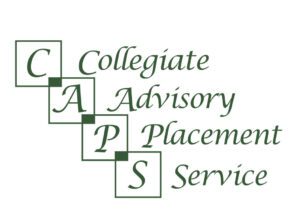College bound? Make sure you have these documents in place before your student leaves home
Sponsored by Collegiate Advisory Placement Service
Your high school graduate may have one foot out the door, but as a parent, there are several things you can do now to ensure you’re able to stay informed of your student’s academic performance, as well as make decisions in case of an emergency.
Nancy Cadwallader, a Baton Rouge-based Certified Educational Planner and owner of Collegiate Advisory Placement Service, provides valuable information to students and parents to help navigate the college admissions process. But once a decision is made, Cadwallader can also be a resource for things you may not think about until an emergency arises.
Most college students are 18-year-olds and legal adults, which means parents are no longer entitled to make decisions for them. This can be a huge problem during a medical emergency. As the parent, if your student is in an accident or takes ill, you legally cannot obtain any information about their medical condition – unless you have legal documents in place.
“Even if they’re staying in Baton Rouge, you’ve got to have something in place,” Cadwallader says. Copies of important documents should be filed with the college’s infirmary and the dean of students, so you can direct the medical facility to contact the school to confirm your access in an emergency.
Advance health care directive
Before a student leaves for college, parents should ensure that arrangements are made to protect the student if they cannot make medical decisions for themselves. This document contains a HIPPA Authorization, which gives advance permission for your child’s doctor to disclose their medical information to you. It also names an agent to make medical decisions for the student in case they are incapacitated and unable to make medical decisions for themselves. If you don’t have this document in place, the doctors will make all the decisions about care.
Durable power of attorney
It’s advisable to also have a durable power of attorney, allowing you to make financial or legal decisions for your child if they are unable to make those decisions for themselves. With this document in place, the parent is allowed to manage their child’s bank account, pay bills, file taxes, apply for government benefits and break a lease.
FERPA release
The Family Educational Rights and Privacy Act is a federal law that protects the privacy of students by limiting third-party access to student education records. To see or receive your student’s grades, your student needs to sign a FERPA release. The form is obtained directly from the college and applies to grades and other information related to student performance.
Cadwallader has some additional advice for parents before their students leave home.
- Be prepared for your student’s conflicting emotions as the day of departure approaches.
- Discuss your family’s values, but don’t give lectures.
- Be a coach rather than a rescuer. Encourage your son or daughter to use the plentiful resources available at college.
- Be an anchor. Don’t make major changes at home without informing your son or daughter.
- Listen with an open mind. Be supportive and don’t trivialize your student’s concerns.
For more information about the services offered by CAPS, contact Cadwallader at 225.931.7518 or visit online at capsbr.com.











